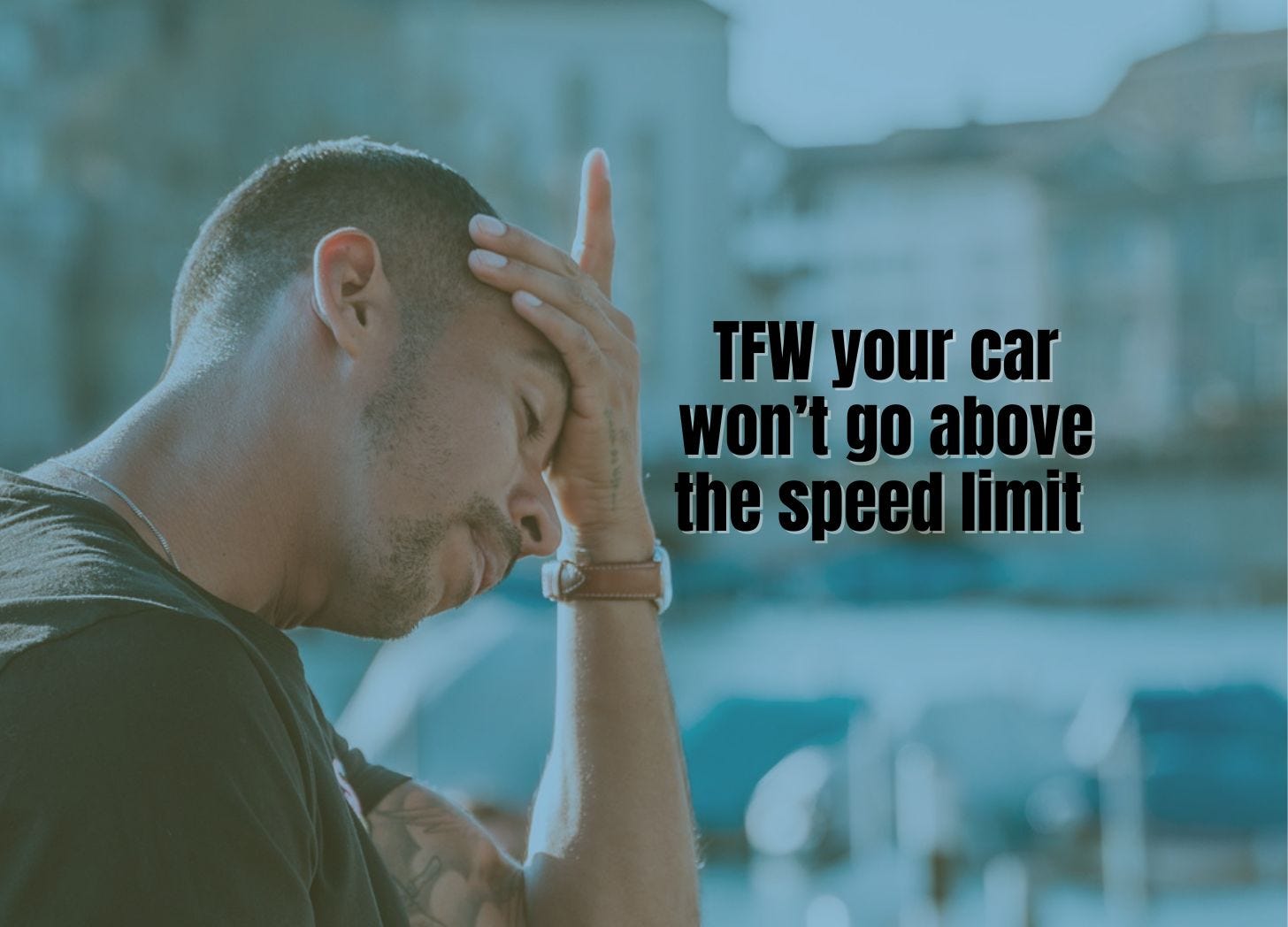Big Brother or Guardian Angel?
Intelligent Speed Assistance can prevent tens of thousands of severe crashes, but limiting speed is not necessarily going to sway politicians.
"Using technology to restrict the speed of my car is Orwellian."
That's a sadly common worldview at the moment. People like driving fast. It feels safe enough when you're in a soundproof, climate-controlled box. Who knows if driving fast is more about enjoying speed or just being impatient, late, anxious, or something else.
Whatever the reason, the faster you drive, the more severe the crash.
Every day, 100+ Americans are killed in traffic crashes and thousands more are seriously injured. Speed is a fundamental factor in severe crashes. Reduce speeds in cities and suburbs, and you'll reduce the number of Americans suffering from crashes. It's absurd to think that the freedom to own motor vehicles and travel where you please also means the freedom to put other travelers in harm's way.
From a study by the AAA Foundation for Traffic Safety:
Most drivers perceive aggressive driving (89%) and running red lights (81%) as dangerous. Yet 27% ran at least one red light in the previous 30 days.
And nearly half (49%) admitted to driving 15 mph over the posted speed limit on a freeway at least once in the past 30 days, while 36% of drivers reported driving 10 mph over the posted speed limit on a residential street.
If people won't change driving behavior on their own, we'll either continue racking up a preventable body count, or government agencies will intervene with strict policies about car use.
At the source, manufacturers can use technology to limit acceleration and speed of motor vehicles. The idea that we all need the ability to leap out of a red light or hit 120 on the interstate because you never know when you'll be in an emergency is so dumb. What actually happens is an alleged emergency is "I was farting around on my phone in the morning and now I'm late for work."
Various types of speed limiters have been used for decades in commercial fleet vehicles, school buses, and public transit vehicles. Intelligent Speed Assistance (ISA) is an in-vehicle technology that uses a combination of GPS, digital speed limit maps, and/or cameras to determine the legal speed limit in real time. ISA restricts engine power, making it impossible to exceed the designated speed limit. It’s also scalable because so many modern vehicles already have the cameras and GPS hardware, which makes retrofitting relatively affordable.
Virginia became the first state to pass legislation mandating the use of ISA for certain reckless drivers, effective July 1, 2026. The law allows judges to require drivers caught exceeding 100 mph to install ISA devices in their vehicles. The Department of Motor Vehicles can also use the ISA program as an alternative to license suspension for repeat offenders with accumulated demerit points. Offenders have to pay for the device themselves, and if they tamper with the equipment they could get a year in jail.
People make mistakes while driving. That's inevitable. But in populated areas like cities, towns, and suburbs, death in traffic is not inevitable. If more people showed self control while driving powerful machines, the life savings would be extraordinary.
Speed governors are a touchy subject in the US. I’d guess the most common dinner party response would be “I don’t like the idea of someone tracking me or being able to take control of my car.” That is real. Mobility-as-a-Service skeptics were concerned about that a few years ago when integrated mobility ideas were gaining traction. There was a chorus of concern that bad actors could take over fleets of autonomous vehicles (buses, trash trucks, robotaxis, etc.).
But I don’t think nefarious government control or app tracking is what really bothers the average American deep down. After all, if those were truly the primary concerns, then hardly anyone would be using TikTok, Meta, Instagram, Google Maps, etc.
I think the root problem is that so many drivers think speed is no big deal, but they’d be embarrassed to admit they don’t care about physics (i.e. crash energy) or statistics about people sent to the hospital or morgue because someone was driving too fast. Even in Virginia, the first state to allow ISA for reckless drivers, the threshold for “reckless requiring speed limiter” is 100 mph. One hundred miles per hour!
I realize it's a hard sell to say "trust us, we'll decide if you should be able to drive a certain speed." But the fact remains drivers aren’t driving safely. This stuff is complicated, but what's not complicated is observing human beings are killing each other in traffic, and speed is a major reason for it.





Why were cars ever allowed to go above the maximum legal speed limit of 80mph?
The National Transportation Safety Board has determined that speeding is a cause of as many accidents as impaired driving. We spend enormous amounts of money on speed monitoring, enforcement, court costs, mitigations like signs, speed bumps, road diets, and still most people admit to speeding. At what point will we face the fact that we simply think our right to ignore speed limits is more important than efforts to save lives, injuries, and property damage? At least the failure to address gun deaths can be laid mostly at the feet of money in politics. Speeding is something we do volunarily. Either by not paying attention (which is in no small part the failure of AASHTO to actually embrace safety) or intentionally, as the saying goes "we have seen the problem, and he is us".